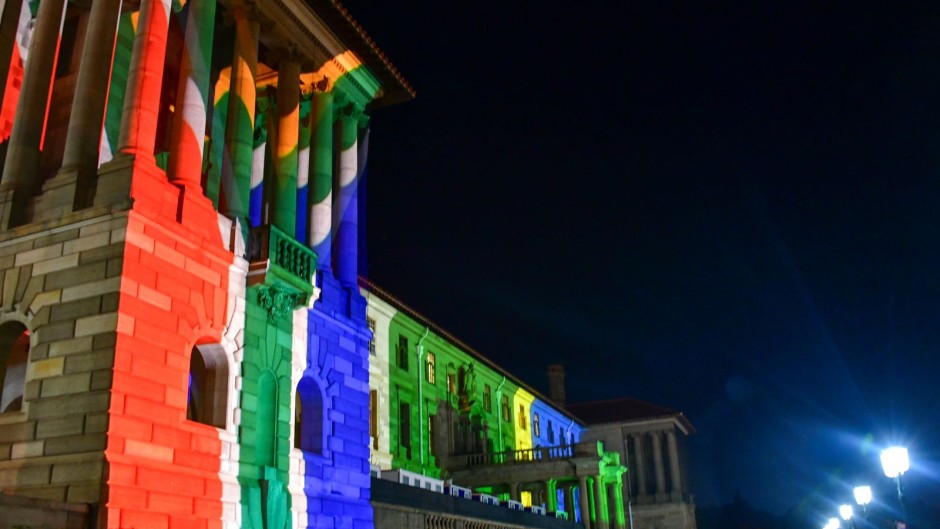JOHANNESBURG - We South Africans speak many languages. But write down a set of numbers in a simple equation and anyone who received a basic education would understand it.
In English we would say “one”. Afrikaners would say een, Zulu speakers would say kunye and Sesotho speakers nngwe. But irrespective of the language, everyone would know the symbol, 1. Everyone would get that 1+1=2.
Some believe numbers have a meaning attached to them. Take the 31st of May (the fifth month of the year) as an example. Both 5 and 31 are numbers that are said to represent change or new beginnings.
Back in 1902, the 31st of May heralded a time of great change in South Africa. On that day, a peace treaty was signed that ended the Anglo-Boer War. The British defeated the two Boer Republics (the South African Republic and the Orange Free State), but, like most wars, it cost lives and destroyed infrastructure.
On the same day and month in 1910, the Union of South Africa was created by the amalgamation of the two former Boer Republics and the British colonies of the Cape and Natal.
The 31st of May 1961 heralded yet further change when South Africa quit the British Commonwealth and proclaimed itself a Republic.
Fast forward to the 31st of May 2024 when change was once again in the air. By then, two days after elections, it was clear that for the first time in South Africa’s 30 years of democracy, the African National Congress would not get enough votes to form a government.
This week, after managing to form a government of national unity that includes the Democratic Alliance, the Inkatha Freedom Party and the Patriotic Alliance, Cyril Ramaphosa was sworn in for a second term as president.
It was a moment to reflect and celebrate the diversity in South Africa– one of the few places in the world where a Muslim and a Jew can share a platform in prayer.
In some respects, Ramaphosa’s first term in office failed to live up to expectations. Ramaphosa came across as a reluctant president – a man who would rather be herding his Ankola cattle than us citizens of the Republic.
Fate also dealt him a cruel hand. Less than a year into his presidency the world went into lockdown following the outbreak of Covid-19. In 2020, heavy rains caused flash flooding in parts of KwaZulu-Natal, Free State and Gauteng. In 2021, Ramaphosa survived an insurrection. In 2022, heaving rains once again damaged infrastructure in KZN. Last year was the worst year in terms of load-shedding, with the lights going out for 335 days.
For the better part of Ramaphosa’s first term, inflation remained stubbornly high. Furthermore, investment dried up, making it difficult for the economy to create jobs. And, without jobs, government failed to reduce poverty and inequality.
But, taking the Presidential Oath of Office this week, Ramaphosa appeared more relaxed and confident. And he has every reason to be.
This will be Ramaphosa’s final term in office, both as president of the ANC and the state. He no longer needs to please so as to win another term. He can finally be the man he chooses to be – the man most South Africans hope he will be.
From a party perspective, Ramaphosa has been most effective in cleaning out people who brought the ANC into disrepute. He was not ruthless but went about it gently – strategically. For now, he is firmly in charge of the party.
But in about three-and-a-half years the ANC will meet to elect a new president. If history is anything to go by, the odds are against Ramaphosa.
While Nelson Mandela voluntarily stepped down after serving one term as president, both Thabo Mbeki and Jacob Zuma were recalled by the ANC before finishing their second terms as president of the country.
If Ramaphosa is not able to deliver a better life to ordinary South Africans quickly, his party will recall him. And, he may not have that long.
In two-and-a-half years, South Africans will be back at the polls to vote in the local government elections. If their lives have not changed for the better, more of them will quit the ANC.
Support for radical parties will rise, spelling the end of our constitutional democracy.
As Ramaphosa warned in his inauguration speech: “There are toxic cleavages and an incipient social fragmentation that can easily turn into instability.”
But for now, Ramaphosa is riding a wave of optimism and positivity. The numbers are also stacking up.
On the day of his inauguration, the JSE hit an all-time high while the rand strengthened to levels last seen a year ago.
The strong rand coupled with stable oil prices should see South Africa finally taming the inflation beast. That could result in interest rates falling before the end of this year.
If South Africans have more money to spend, consumer demand could rise, creating the right conditions for businesses to employ more people. Add international investment into this mix and we could finally see the economy growing to higher levels.
Ramaphosa was inaugurated on the 19th of June (the sixth month of the year). Those who believe that numbers have a meaning say that six represents love and care while 19 reflects a fresh start.
Based on this, the numbers are pointing to the start of a new era for Ramaphosa and a brighter future for us South Africans.
By Aakash Bramdeo, Content Editor at eNCA
The information contained in the article posted represents the views and opinions of the author and does not necessarily represent the views or opinions of eNCA.

